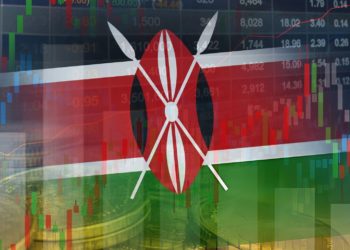For years, Kenyans living and working abroad have played a critical role in Kenya’s development. From building homes and funding education to cushioning families from inflation and unemployment, remittances are more than just money, they are a lifeline. For instance, in 2024, the Central Bank of Kenya reported diaspora remittances increased by 18.0% to USD 4.9 bn in 2024 from USD 4.2 bn in 2023. This accounts for nearly 4.5% of Kenya’s Gross Domestic Product. However, a proposed U.S. policy may put this crucial inflow at risk with potentially dire consequences for Kenyan households, the currency market, and the national economy.
The bill known as the One Big Beautiful Bill Act that was introduced by US Republicans and endorsed by Donald Trump, proposes a 5.0% excise tax on all outbound remittances by non-citizens. This includes lawful permanent residents such as green card holders, temporary visa holders such as F1 and H1B workers, and undocumented immigrants. This tax would be applied directly at the point of transfer meaning banks and digital payment platforms would be required to collect it. This will cause immigrants to rethink the whole logic of sending money due to its potentially costly nature.
Kenyans in the diaspora, especially those in the United States, are among the most active in financial remittance to their home country. These remittances are used to pay school fees for children back in Kenya, fund healthcare for sick and aging parents, support construction and mortgages and capitalize local businesses. A significant drop in these remittances could leave many Kenyans in the cold as this would likely result in reduced household consumption particularly in low income rural regions, increased demand for state social services such as healthcare and increased pressure on the Kenyan Shilling as the dollar inflows shrink.
Kenya’s economic dependence on diaspora remittances is not new but it has deepened in recent years as exports have stagnated and foreign aid has declined. The proposed U.S. tax is a reminder that over-reliance on external inflows carries significant geopolitical risk. This may be the right moment for Kenya to, expand diaspora investment channels like diaspora bonds, which offer returns while keeping funds within Kenya, create tax incentives and invest in diversified foreign exchange sources, including high-value exports and tourism.
While the One Big Beautiful Bill Act remains a proposal, its potential impact on Kenya cannot be ignored. In a global economy increasingly shaped by populist policies and political unpredictability, countries like Kenya must not only protect their diaspora but prepare for a world where even personal remittances are up for taxation. If the diaspora is Kenya’s lifeline abroad, any interference in that flow may disrupt the Kenyan economy and shake the foundations of national resilience.


















